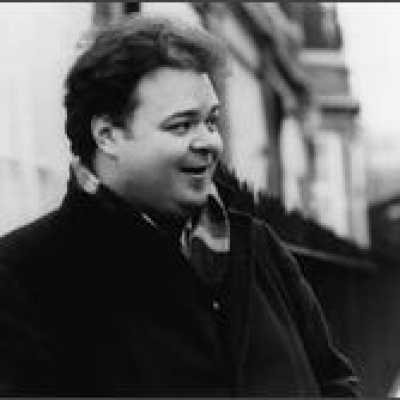
David Thomas
by Jason AnkenyThe longtime frontman of the seminal art-punk band Pere Ubu, David Thomas was born June 14, 1953 in Moss Point, MS. A onetime music journalist, he first attracted attention as a performer during the mid-1970s while leading the Cleveland-based cult favorites Rocket from the Tombs; in 1975, he and fellow rock scribe Peter Laughner formed Pere Ubu, debuting later that year with the single "30 Seconds Over Tokyo." With their noisy, anarchic sound and Thomas' wailing, scattershot vocals, Ubu emerged as one of the key underground acts of the punk era, issuing a series of classic LPs including 1978's The Modern Dance, 1979's Dub Housing and 1980's The Art of Walking to critical applause and commercial indifference before dissolving in 1982. Thomas had already begun a solo career a year earlier with The Sound of the Sand and Other Songs of the Pedestrians, a collaboration with guitar virtuoso Richard Thompson, and in 1983 he released both Variations on a Theme and Winter Comes Home. Efforts including More Places Forever and Monster Walks the Winter Lake followed before Thomas released 1987's Blame the Messenger, recorded with a backing band dubbed the Wooden Birds; the group's lineup included fellow Pere Ubu alums Allen Ravenstine and Tony Maimone, and when another onetime bandmate, drummer Scott Krauss, sat in for a Cleveland live date, the decision was made to begin working as Ubu again. The reformed line-up debuted in 1988 with The Tenement Year, and despite a series of roster shifts continued on throughout the decade to follow; in 1996, Thomas also released a new solo LP, Erewhon, with new backing band the Two Pale Boys, which also featured avant trumpeter Andy Diagram (also of the Diagram Brothers, the Honkies and the Spaceheads) and sonic maniupulator Keith Molene. His musical theatre project, Mirror Man, debuted in London two years later and was released on CD in 1999; Bay City followed on Thirsty Ear a year later. The second Pale Boys album, Surf's Up, appeared in 2001.
